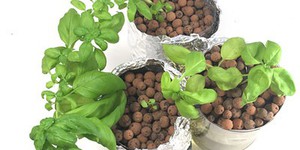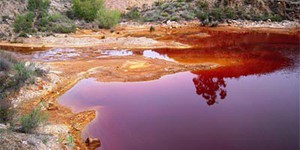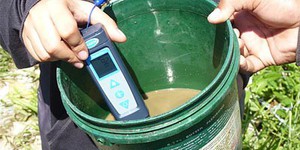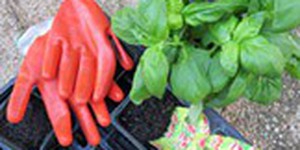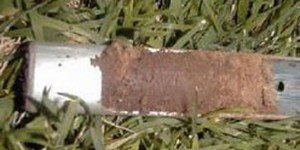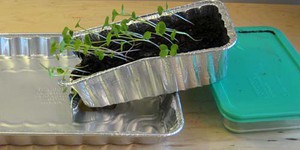Others Like “Toxic Trees: Just How Toxic is That Black Walnut Tree?” (top 20 results)
|
What do plants need to grow? Most of us would answer that they need light, air, water, and soil. But by using a process called hydroponics, you can grow plants without soil! How does it work? Try this project and see for yourself!
Read more
Trees grow more during the early spring than they do the rest of the year. Because of this period of dormancy, or lack of growth, each year of growth is marked by a line called a tree ring. You can count the number of rings in the cross section of a tree trunk to show how old the tree is. You can also count the number of rings in a stem to see the age of a stem or branch. One way to measure the rate of growth of a tree is to count the number of rings per inch. Trees with high numbers of…
Read more
You might know that lead can be toxic, and that you can get lead poisoning from eating or inhaling old paint dust. Lead is called a heavy metal, and there are other sources of heavy metals that can be toxic, too. Silver, copper, mercury, nickel, cadmium, arsenic, and chromium are all heavy metals that can be toxic in certain environments. In this experiment, find out if one common heavy metal, copper, can be toxic to an aquatic environment.
Read more
Did you know that soils can be alkaline, neutral, or acidic? Most plants grow best in soil near neutral pH, but some plants prefer slightly acidic and others slightly alkaline soil. What is the pH of the soil in your garden? What happens to the pH of water that comes in contact with soil? In this science project you will get to find out.
Read more
Crown gall is a plant disease caused by the soil bacterium Agrobacterium tumefaciens. This project uses tomato plants to investigate whether garlic extract can prevent crown gall infection.
Read more
Everybody knows that worms are good for the soil, but not everybody knows why. Here's a project that investigates just one of the ways earthworms improve the earth. Would earthworm castings (or earthworm manure) help your plants prosper and flourish? If so, how much should you use?
Read more
Did you know that you can use more water on your lawn and garden in the summer than you use for all other purposes all year long? If you have an automated sprinkler system for your lawn and/or garden, this project could save money on your family's monthly water bill. You'll also be helping to conserve a precious natural resource: clean water.
Read more
Did you know that apple trees do not "breed true"? This means that if you plant seeds from an apple, say a Granny Smith, you will get apple trees, but they will make apples that are actually different than Granny Smiths. So how do farmers produce new Granny Smith trees? They use a method called vegetative propagation. For instance, they may cut a branch off of a tree that grows Granny Smith apples and attach the branch onto a different tree trunk. This method of making new trees is called…
Read more
Do you or your family have a lawn, garden, or potted plants that you water regularly? Irrigation—or the artificial application of water to plants and landscaping—accounts for over two-thirds of the world's freshwater consumption (U.S. Geological Survey, 2016)! While that total includes farms, in the United States landscape irrigation still accounts for almost one-third of residential water use. As much as half of that water is wasted due to inefficient watering methods (WaterSense,…
Read more
Soil erosion can cost the world billions of dollars every year by washing pollutants into our streams and rivers and by causing the loss of farmland. What can you do about this problem? Help save the world (and some money!) with nothing more than a few plants!
Read more
|
Explore Our Science Videos
How to Build a Brushbot
Build a Simple Electric Motor
Flying Helicopters on Mars - Paper Models


